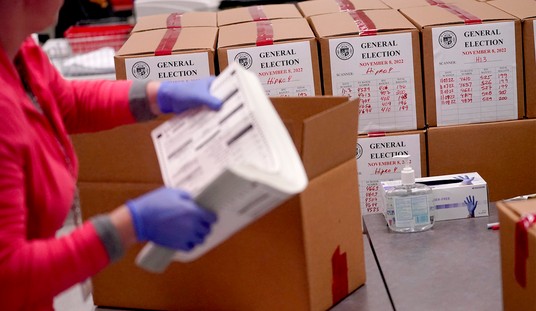In the '60s my parents opened a small diner near downtown Los Angeles. As a child, I watched my parents sitting at the kitchen table, discussing their plans for what they considered a huge expansion of the business -- hiring a dishwasher. But my parents kept putting off the decision, in large part because of a proposed minimum-wage hike. This would've made the additional employee, as I recall my parents concluding, "too expensive."
This brings us to the impact of recent minimum wage hikes in California. The owner of a small restaurant told me that Los Angeles Mayor Eric Garcetti invited several small business owners to city hall to discuss the impact of a proposed minimum wage hike. Several brought profit-and-loss statements. Each business person, the small restaurant owner said, tried to convince the Democratic mayor that their profit margins were too small to take the wage hike without laying people off, cutting hours or raising prices, which usually means a falloff in business.
At the end of the meeting the mayor simply said, "I feel confident that you can absorb the cost."
A new study by two researchers, one with Mathematica Policy Research and the other with Harvard Business School, focused on "the impact of the minimum wage on restaurant closures using data from the San Francisco Bay area." The researchers concluded that "a $1 increase in the minimum wage leads to approximately a 4 to 10 percent increase in the likelihood of exit." They wrote: "The evidence suggests that higher minimum wages increase overall exit rates for restaurants. However, lower quality restaurants, which are already closer to the margin of exit, are disproportionately impacted by increases to the minimum wage." So the most vulnerable restaurants -- the more "affordable" ones -- appear to be the most hurt by a minimum wage hike.
Recommended
In January, the East Bay Times reported that 60 restaurants in the San Francisco Bay area had shuttered their doors since September. Even the mighty have fallen. The Fresno Bee recently wrote: "Joining San Francisco's restaurant die-off was rising star AQ, which in 2012 was named a James Beard Award finalist for the best new restaurant in America. The restaurant's profit margins went from a reported 8.5 percent in 2012 to 1.5 percent by 2015. Most restaurants are thought to require margins of 3 and 5 percent."
In San Diego, voters approved an $11.50 per hour minimum wage for 2017, up from an $8 minimum wage in June 2014. This is an increase of 44 percent -- in just two and a half years! The San Diego Union Tribune recently reported: "Evidence has emerged of an economic dark side to San Diego's decision last year to vault over the state minimum wage -- it may have already destroyed thousands of jobs for low-wage workers even as higher pay helps tens of thousands of others.
"Consider the restaurant industry, for example, which economists study because it relies on low-wage workers, yet generally faces no foreign or out-of-state competition. Amid an abrupt slowdown in growth, nearly 4,000 food-service jobs may have been cut or not created throughout San Diego County from the beginning of 2016 through February of this year."
The now-defunct organization called the Association of Community Organizations for Reform Now came to California years ago to gather signatures on a petition for a ballot measure to increase minimum wage. Incredibly, ACORN sued the state to exempt itself from the then-current minimum wage and overtime laws. In its filings, ACORN said, "The more ACORN must pay each individual outreach worker -- either because of minimum wage or overtime requirements -- the fewer outreach workers it will be able to hire." Can't make this stuff up.
When George McGovern, the 1972 Democratic presidential candidate, left the Senate, he bought the Stratford Inn, a small Connecticut inn and restaurant. It went bust and he blamed, in part, the very kind regulations he passed as a politician devoid of business experience. "I wish I had known more firsthand about the concerns and problems of American businesspeople while I was a U.S. senator and later a presidential nominee," said McGovern. "... I learned by owning the Stratford Inn is that legislators and government regulators must more carefully consider the economic and management burdens we have been imposing on U.S. businesses. ... Many businesses, especially small independents such as the Stratford Inn, simply can't pass such costs on to their customers and remain competitive or profitable."
As for the mayor of Los Angeles, it should be noted that he worked on a Ph.D.at the London School of Economics. But at this famed institute, Garcetti did not study economics. He studied "ethnicity and nationalism."
Makes sense.

























Join the conversation as a VIP Member